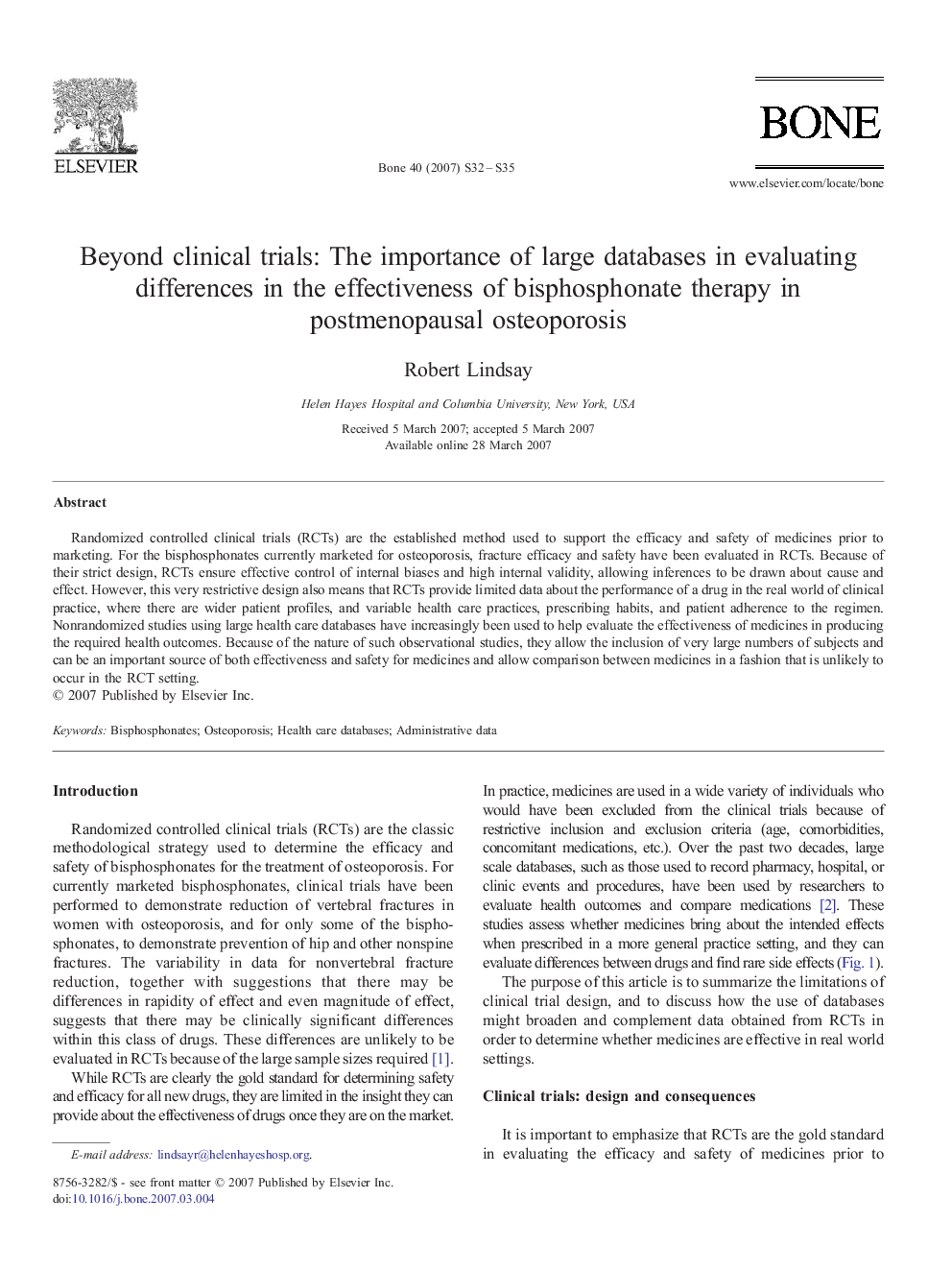| Article ID | Journal | Published Year | Pages | File Type |
|---|---|---|---|---|
| 2781929 | Bone | 2007 | 4 Pages |
Randomized controlled clinical trials (RCTs) are the established method used to support the efficacy and safety of medicines prior to marketing. For the bisphosphonates currently marketed for osteoporosis, fracture efficacy and safety have been evaluated in RCTs. Because of their strict design, RCTs ensure effective control of internal biases and high internal validity, allowing inferences to be drawn about cause and effect. However, this very restrictive design also means that RCTs provide limited data about the performance of a drug in the real world of clinical practice, where there are wider patient profiles, and variable health care practices, prescribing habits, and patient adherence to the regimen. Nonrandomized studies using large health care databases have increasingly been used to help evaluate the effectiveness of medicines in producing the required health outcomes. Because of the nature of such observational studies, they allow the inclusion of very large numbers of subjects and can be an important source of both effectiveness and safety for medicines and allow comparison between medicines in a fashion that is unlikely to occur in the RCT setting.
